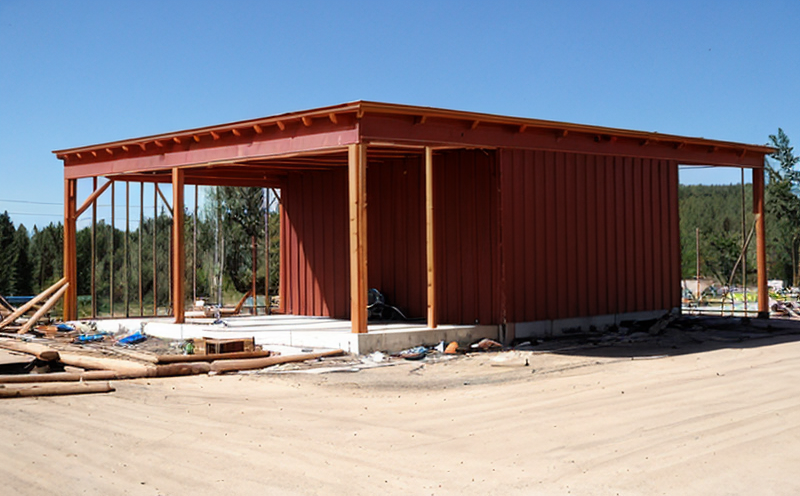Structural Integrity Assessment
The process of structural integrity assessment is critical in ensuring that materials and structures are capable of performing their intended functions safely and efficiently over their entire lifecycle. This service involves a thorough examination of the physical, mechanical, and chemical properties of materials to determine their reliability and durability under various conditions.
Structural integrity assessment plays a pivotal role across numerous industries including aerospace, automotive, construction, energy, and manufacturing. It helps in identifying potential weaknesses or defects that could lead to failures if not addressed early on. By leveraging advanced testing techniques, this service ensures compliance with international standards such as ISO 9001 for quality management systems and ASTM E730-21 for mechanical testing.
The assessment typically involves multiple steps starting from initial inspection through detailed analysis using sophisticated equipment like electron microscopes or ultrasonic flaw detectors. Specimens are prepared according to specific protocols ensuring accurate results. Once tested, comprehensive reports are generated detailing findings along with recommendations for improvement where necessary.
Understanding the environmental factors affecting structural integrity is crucial in this process. Factors such as temperature changes, humidity levels, exposure to chemicals can significantly impact material performance over time. Therefore, understanding these variables allows us to tailor our assessments more accurately reflecting real-world scenarios faced by structures in operation.
- Sustainability: By identifying early signs of degradation or failure due to environmental stressors, we help reduce waste and extend the service life of materials, thereby promoting sustainable practices.
- Economic benefits: Early detection of issues leads to cost savings by avoiding costly repairs or replacements down the line.
- Safety enhancement: Ensuring structural integrity reduces risks associated with potential failures which could result in accidents or injuries.
In summary, structural integrity assessment is an essential aspect of maintaining safety and efficiency within various sectors. It provides valuable insights into material behavior under different conditions helping to drive informed decision-making processes throughout the product lifecycle.
Industry Applications
Structural integrity assessments find extensive applications across diverse industries where reliable performance is paramount. In aerospace, for instance, ensuring structural integrity is vital given the extreme operating environments that aircraft and spacecraft encounter. This service ensures components meet stringent safety requirements set forth by organizations like NASA or FAA.
The automotive industry also places significant emphasis on structural integrity assessments to enhance vehicle design and manufacturing processes continuously improving fuel efficiency while maintaining high standards of safety. Similarly, in construction projects involving large-scale infrastructure such as bridges or skyscrapers, accurate assessment helps prevent costly accidents ensuring public confidence.
For energy sectors like wind turbines and power plants, structural integrity is key to optimal performance and longevity. By conducting regular assessments, these facilities can avoid unexpected downtime reducing operational costs significantly. Furthermore, this service supports compliance with regulatory bodies responsible for overseeing safety standards in these critical areas.
Why Choose This Test
Selecting structural integrity assessment as your go-to testing solution offers numerous advantages that contribute to overall quality assurance and improved product performance. Firstly, it provides unparalleled insight into the condition of materials used within structures, allowing you to make informed decisions about replacements or repairs before they become critical issues.
Compliance with industry standards is another compelling reason to opt for this service. By adhering strictly to recognized protocols like ASTM E730-21, you ensure your products meet international benchmarks enhancing their marketability and reliability. Additionally, such assessments foster trust among stakeholders including customers, regulatory bodies, and investors.
Another benefit lies in the ability of this testing method to identify potential flaws early on during development stages rather than waiting until deployment when damage might already be extensive. Early intervention minimizes financial losses associated with product recalls or failed installations while also reducing reputational risks.
Finally, choosing structural integrity assessment demonstrates a commitment to excellence and continuous improvement within your organization. It showcases not only adherence to best practices but also proactive measures aimed at maintaining top-notch standards across all aspects of operations.





